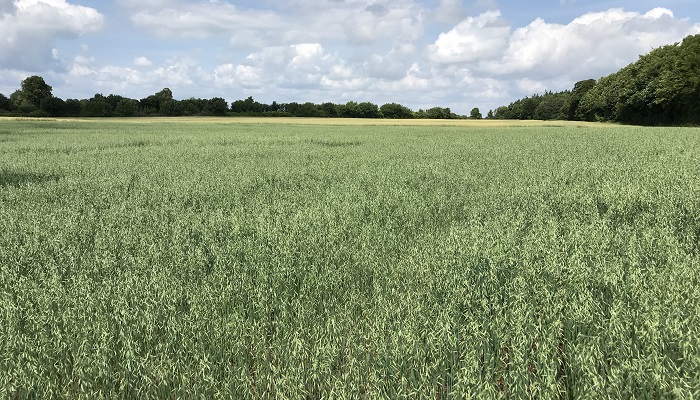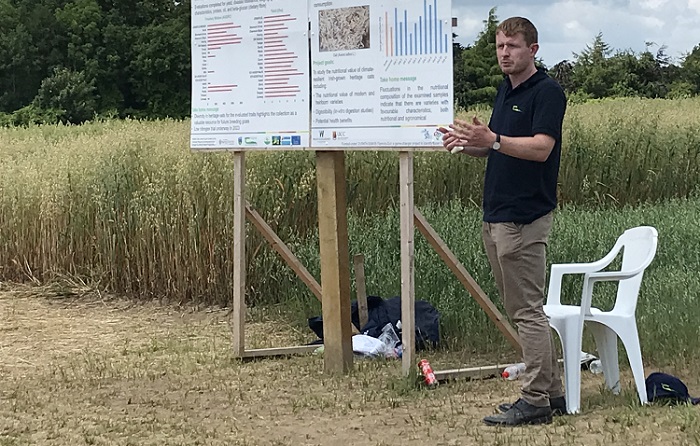26 June 2023
Back to the future – developing new avenues for oats

An overview of the Healthy Oats project, a collaboration between Teagasc, UCD and Aberystwyth University, was provided at the Crops and Cover Crop Cultivations Open Day on Wednesday, June 21st.
Cathal McCabe, Lecturer in the UCD School of Agriculture and Food Science, explained: “The whole concept of the project was very much based on the fact that UCD has a collection of 190 oat varieties. These were collected from all over the world and range in release date from the 1820s right up to modern varieties – 180 years of breeding and oat genetics.”
Of these oat varieties, 25 of the best performers were selected for detailed evaluation on three trial sites – UCD Lyons Farm, Teagasc Oak Park and Aberystwyth University in Wales. Evaluations are being completed for yield, disease resistance, lodging, grain physical characteristics, protein, oil and beta-glucan (dietary fibre).
“Instead of using yield as the primary driver for variety selection,” Cathal outlined, “we are really interested in looking at things like disease resistance, grain quality, grain protein, grain oils and antioxidants.
“If we look at some of the older varieties, they are much superior in terms of grain quality, beta-glucans and oils – the key quality characteristics for human nutrition – than the modern varieties. We are trying to go back and look at the varieties we have to pull out these key traits with plant breeding.”

Cathal McCabe highlighting the Healthy Oats project at Crops and Cover Crop Cultivations 2023
Future aims
The diversity in heritage oats for the evaluated traits outlined above highlights the collection as a valuable resource for future breeding goals. On this, Cathal said: “People will often say they don’t want to grow oats because there are limited end-use markets, but this project is all about trying to develop new potential avenues for oats and to add further value.”
“We would love to see the project creating market differentiation. You might have the potential to grow a high protein, a high oil or low oil oat for different markets. There is quite significant interest from the food industry in it. I’ve had quite a lot of contact from people looking to develop a supply chain for a higher protein type oat, a supply chain for a lower oil type oat or a supply chain for a higher beta-gluten type oat,” Cathal said.
In addition to the evaluation on traits, a low nitrogen trial is also underway in 2023 to see how heritage varieties cope with reduced levels of chemical fertiliser. Watch this space.
Also read: Developing better tools for forecasting and control of BYDV
Also read: Highlights from the Teagasc Crops Open Day
Also read: Mechanical weed control demonstration in field crops at Oak Park
